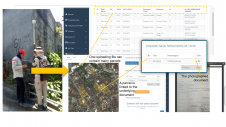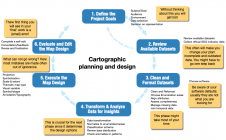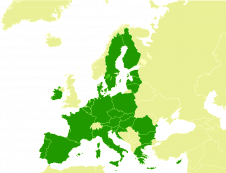Retaining Our Global Values
The political events of the past six months will potentially have a significant impact on land professionals worldwide. The decision of the UK (apart from Scotland) to exit the European Union and the election of a right-wing president in the USA show worrying trends indicating that globalisation, open movement of services and, most importantly, international humanitarian and development funding are under threat. This has sent shockwaves through NGOs and others who fear the impact on the world’s largest donor of international humanitarian and development funding. The future direction of the World Bank and the U.S. Agency for International Development (USAID) are uncertain, for example. The wall was torn down in Berlin 27 years ago. The question now is whether barriers are starting to be erected again that will stop solutions to global issues which will impact us all.
(由罗宾·麦克拉伦知道边缘有限公司,英国)
Solutions to the overall global land issues relate to alleviation of poverty, improvement of social inclusion and stability, investments and economic development, and environmental protection and natural resource management. These land matters are now embedded in the Sustainable Development Goals (SDGs) that form a blueprint for a sustainable future agreed on by all world leaders. This agenda cannot be achieved without having good land governance in place – including the operational component of land administration systems.
As some countries turn inward and ignore the global challenges of the 21stcentury, it is essential that land professionals refocus and re-energise their efforts towards more effectively communicating and resolving global land issues. Just as advocates of free markets and globalisation have failed to convince many citizens of the benefits of this approach, land professionals must not be complacent. They need to rethink and reshape their message, providing clearer evidence to politicians of the benefits of their land interventions and investments.
Land professionals have been guilty of designing and implementing land administration solutions that are inappropriate and non-sustainable for developing countries. Members of the family of UN agencies provide mixed messages to developing countries, confusing recipients of aid in the land sector. For example, the concept of ‘continuum of land rights’ is not universally agreed and advocated. Global land issues require multi-disciplinary solutions, but professional silos have significantly limited the effectiveness of the solutions. The key stakeholders in the land sector also need to attract new technology partners to provide truly scalable solutions, such as Facebook which is actively mapping settlements across Africa to prioritise the provision of internet services. Our engagement strategy has been ineffective at communicating with politicians and key decision-makers. Technical rather than socio-economic messages prevail and land rarely sits at the top table.
Within the context of the recent political shift to build walls and walk away from global responsibilities, it is time for land professionals to take stock. This challenge provides an opportunity for land professionals to rethink their strategy for coordinating, designing, communicating and resolving global land issues. The land issues must not be sidelined and land professionals need to retain their global perspective and values. This new SDG agenda presents a historic and unprecedented opportunity to bring the countries and citizens of the world together to decide and embark on new paths to improve the lives of people everywhere.
Make your inbox more interesting.Add some geo.
Keep abreast of news, developments and technological advancement in the geomatics industry.
Sign up for free
























